It’s our Bandcamp Picks of the Week, featuring the elevated prog-rock of Randy George’s BEYOND WORDS and the scuzzy burnout rock of The Menscheviks’s new EP ENOUGH ROPEY!
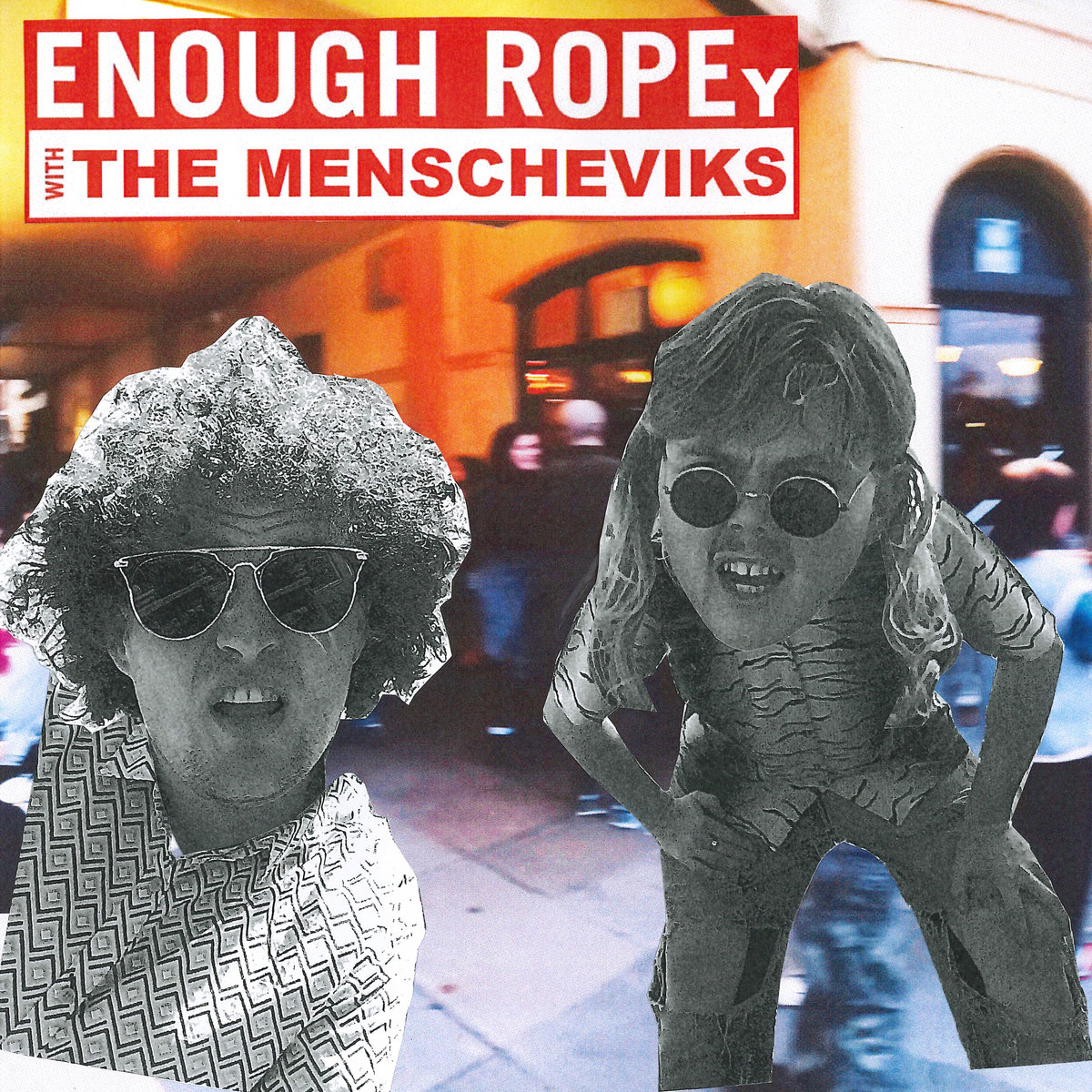
The Menscheviks – ENOUGH ROPEY
Genre: Garage Rock, Punk
Favorite Tracks: “In This Mess You Left Me,” “Billy The Punk”
What makes a lovable loser? Is it something so pathetic that you somehow feel sorry? Or maybe their mere presence assuages your own shortcomings? Personally, I think it’s self-awareness—when the thing knows it’s sad and/or shoddy, and embraces that with gusto.
That’s clearly why I’ve come to greatly admire The Menscheviks.
The Adelaide-based duo claim to be on a “long drawn out quest for competence,” and while “they are not there yet… the struggle continues.” And as their new four-song EP ENOUGH ROPEY demonstrates, they’re not kidding at all. “Downward Spirals” is so lo-fi that, before the janky garage punk tumbles out of your speaker, you can hear a ceiling fan drone on for far too long. And even when there’s no technical issues, “Selena” demonstrates the band’s broken instrumentation and nasally harmonies are their baseline interactions with the world.
But then that’s sort of the point—they don’t make any bones about being a couple of struggling slackers trying to make the best music they can. The fact that it’s like the weird, less-savvy brothers of Wall of Voodoo is as much a point of contention as a badge of honor. The Menscheviks have turned their creative limitations into a compelling commentary on making art and doing so no matter your weird, Napoleon Dynamite-esque circumstances.
And so those first tracks are still enjoyable—less as proper songs and more as proof positive of their artistic concept having legs. But the album’s other tracks, “In This Mess You Left Me” and “Billy The Punk,” are actually good—exceptionally so. The former is a synthesis of They Might Be Giants and Franklin Bruno—a jangly, occasionally irksome song about being a loser in love (and providing support for why you’re newly single). The latter, meanwhile, seems to “suffer” less from the uber lo-fi shtick, and is an earnestly catchy ditty about a truly lovable loser type. (There’s real layers to it, and it almost feels transcendentally meta in that way.)
What these two tracks prove is that not only is there talent here, but what really happens when the band lean into their loser vibes. We get simple but profound displays of earnest songwriting genius: a ramshackle sound that leans charming as opposed to semi-grating and strategically underwhelming musicianship that has more chutzpah than if they were technical wonders. Which is to say, these two are the realization of the truth that exists when you cut out the pretense and embrace something wonderfully chintzy about yourself as a human, and express these insights with an ease that speaks volumes.
The Menscheviks are lovable losers because they make you want to know them through all the junk noise and hokey vibes. They live as they were made, and it’s a joy to hear these absolute dipsticks bash around with their little pop-rock gems. Listen to it now over on Bandcamp. [Chris Copland]
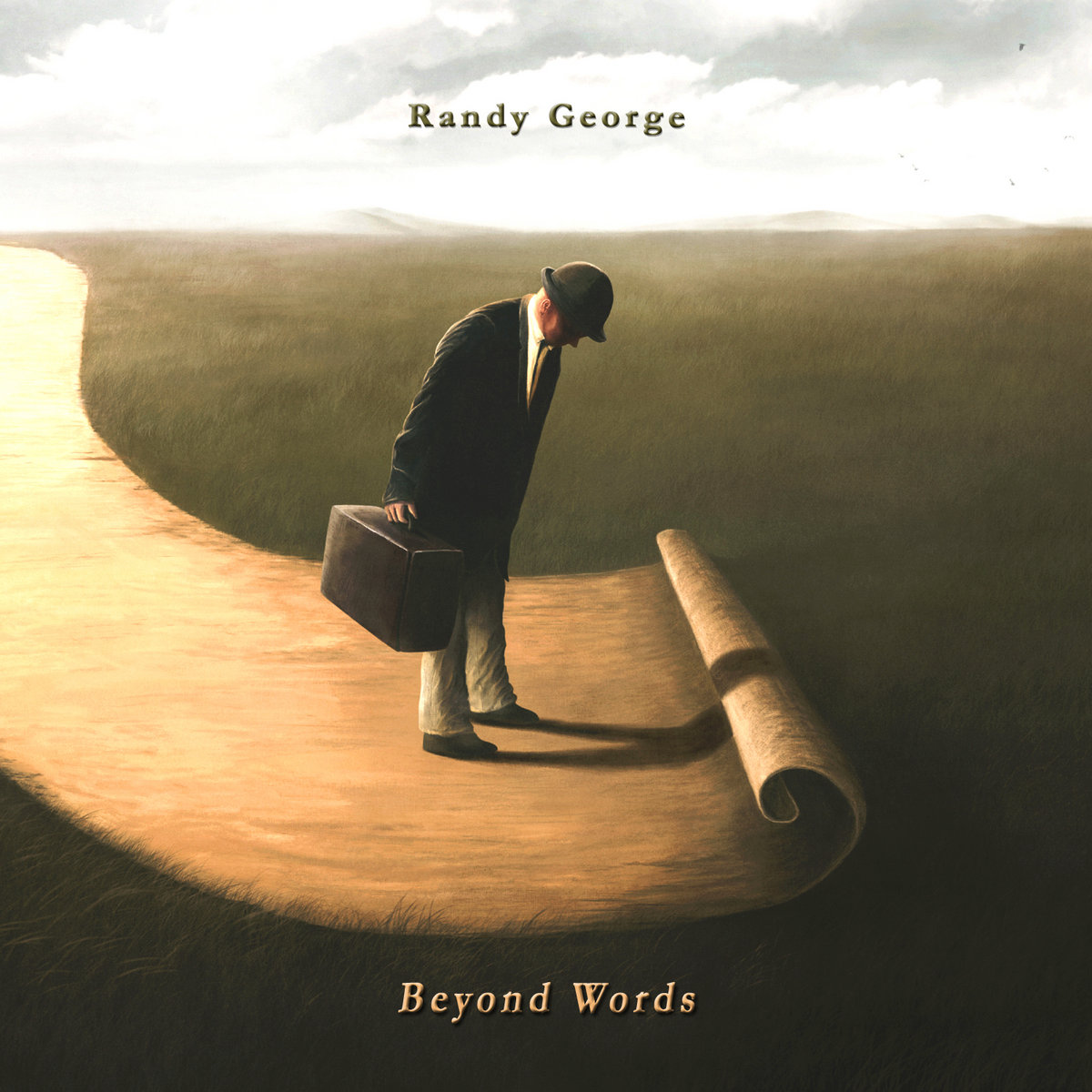
Randy George – BEYOND WORDS
Genre: Progressive Rock, Jazz Fusion
Favorite Tracks: “Beyond Words,” “Foam Rubber Monsters,” “Three Sides To Every Story”
It’s often joked about that the bass player is the least important member of a band—and certainly the least likely to become the star. And yet, genres such as prog-rock and jazz go out of their way to provide a platform for the technically gifted and talented to build a profile that rivals that of the madcap drummer, virtuoso guitarist, or even the egocentric singer. Randy George is proof of this.
Having played with prog-rock virtuoso Neal Morse for almost two decades, George has garnered respect among the prog-rock scene and has built up a small but substantial fanbase. He’s by no means a cult of personality, yet his talent and charm are enough that acolytes rallied to the cause when George announced a campaign to record his third solo album (and the first in over a decade), BEYOND WORDS. Despite the nature of the LP as a crowd-funded passion project, it reads as rather slight in comparison to the bass player’s previous works—there’s no attempt to create grand statements about man’s relationship with God, nor is George trying to compete with other technically inclined instrumental acts like Liquid Tension Experiment. It’s merely a chance for George to stitch together quirky jams and fool around with instruments beyond the bass guitar. For this reason, shred heads and prog snobs might scoff at the LP, but for the uninitiated, it’s an engrossing gateway into a world that rests outside conventional rock and pop. Consider the opening track, “Cappuccino With Max”; despite the ever-changing melody and the song’s complex rhythm (perfectly locked in by George and drummer Dan Lile), it’s a piece that has a clear compositional framework. There’s a central hook that weaves its way in and out for the song’s succinct runtime of just-over four minutes, and it’s enough to encourage listeners to come back around and discover the smaller intricacies of the piece.
While most of the album’s instrumentation is delivered by the dexterous George, the aforementioned Neal Morse delivers several tasteful synth parts on “Technical Difficulties,” Paul Hansen contributes some squawking bassoon solos on the aggressive “Foam Rubber Monsters,” guitar virtuoso Eric Gillette acts as the driving force on the brief but exhilarating “Pool Toad Redemption,” and then there’s “Make Me Real.” The album’s lone vocal track is a killer hard-rock number that singer Simon Godfrey belts out with just the right amount of cheese. It’s quintessential, unabashed dad-rock and it’s not in the slightest bit embarrassed with its identity.
Though BEYOND WORDS is by no means the best album released by a bass guitarist this year (that honor could probably go to Adi Oasis), there’s no denying the simple charm that Randy George brings to his third studio effort. For every questionable transition that proliferates pieces like the fretless bass feature “Soul Geometry,” there’s a sparkling piano line or engrossing synth tone that will make you long to explore George’s back catalog or perhaps even stream the inspirations he cites for each piece. Check it out on Bandcamp! [Connor Shelton]





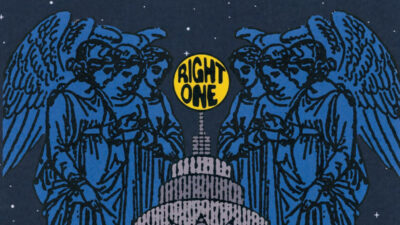
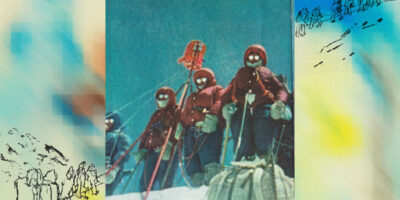

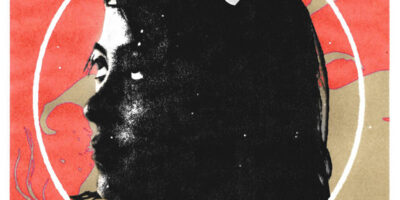


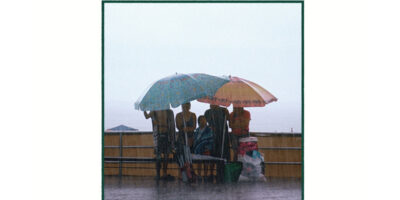


Comments